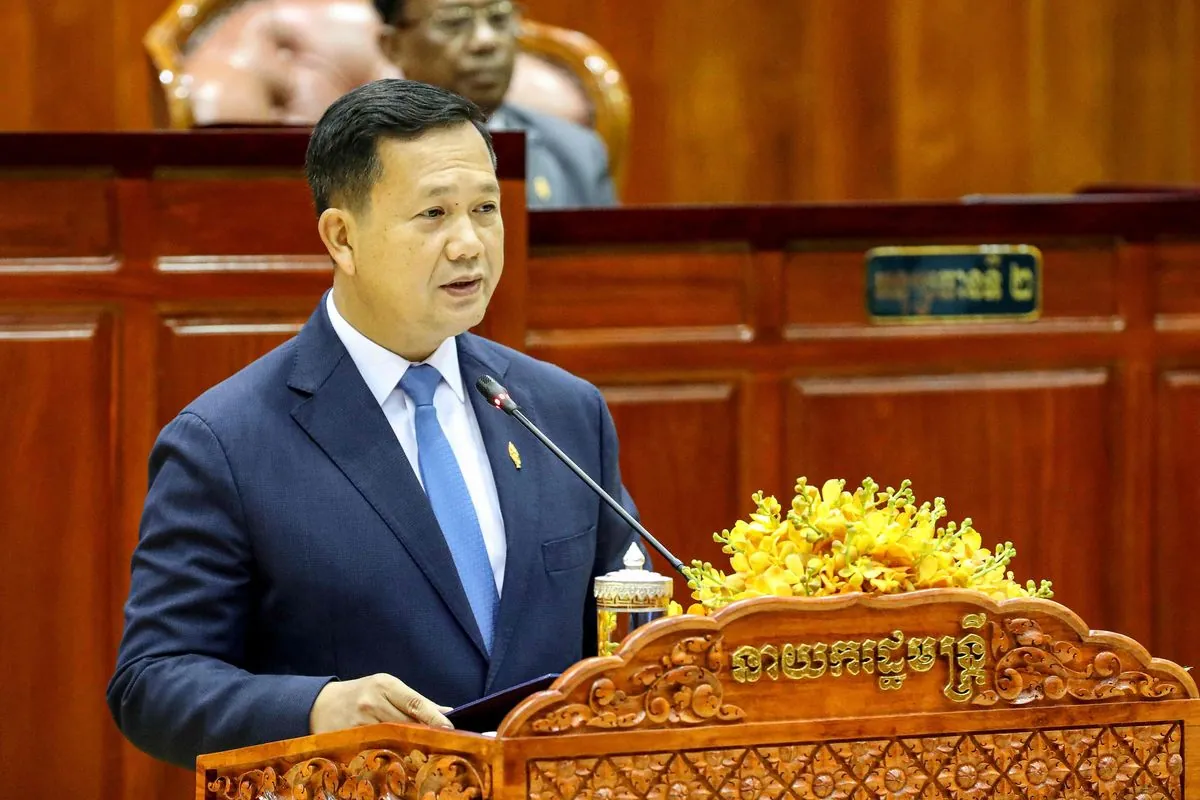In a significant policy shift, Hun Manet, Cambodia's Prime Minister, has announced the country's withdrawal from the Cambodia-Laos-Vietnam Development Triangle Area (CLV-DTA) agreement. This decision comes in response to mounting public pressure and concerns over territorial integrity.
The CLV-DTA, established in 2004, aimed to foster cooperation in trade and migration across four northeastern Cambodian provinces and adjacent areas in Laos and Vietnam. However, the pact has recently faced intense scrutiny, particularly regarding land concessions near the Vietnamese border.
Cambodia's complex history with its neighbors, especially Vietnam, has contributed to the sensitivity surrounding this issue. The two countries have a tumultuous past, including the Cambodian-Vietnamese War from 1975 to 1989 and Vietnam's intervention in 1978 that ended the Khmer Rouge regime.
Prior to the announcement, authorities had detained at least 66 individuals planning to participate in a protest against the CLV-DTA in August 2024. While most were subsequently released, key organizers still face legal charges.
Hun Manet defended the government's achievements in developing the four provinces over the past 25 years. However, he stated that the decision to exit the agreement was made "taking into account people's concern on territory and the need to withdraw weapons out of the hands of extremists."
This move occurs against the backdrop of Cambodia's political landscape, where the government has long faced accusations of suppressing dissent. Hun Manet assumed leadership in 2023, succeeding his father Hun Sen, who ruled for four decades. Despite the change in leadership, there have been limited signs of political liberalization.
Cambodia, a constitutional monarchy with an elected democracy, has experienced rapid economic growth in recent years, averaging 7% GDP growth from 2000 to 2019. However, the country continues to face criticism from international organizations regarding human rights and political freedoms.
As Cambodia navigates this latest political challenge, the impact of withdrawing from the CLV-DTA on regional relations and development initiatives remains to be seen.
"For instance, allegations that the government ceded the territory of the four northeastern provinces to foreign countries, etc."
This situation highlights the ongoing tensions between Cambodia's pursuit of regional cooperation and its domestic political dynamics, reflecting the complex interplay of historical, economic, and social factors shaping the nation's trajectory.
